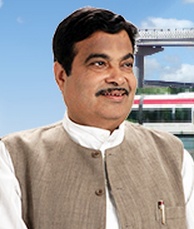India, Nepal adopt SAARC agreement to facilitate seamless bus travel
11 Nov 2014
 India and Nepal have agreed to adopt the SAARC Motor Vehicle Agreement, which would facilitate Nepal-India bus services on a reciprocal basis allowing seamless movement of people between the two countries.
India and Nepal have agreed to adopt the SAARC Motor Vehicle Agreement, which would facilitate Nepal-India bus services on a reciprocal basis allowing seamless movement of people between the two countries.
The agreement, which was approved at both the technical level as well as the expert group meeting of SAARC during September 2014, has been suitably amended to confine it to movement of passenger vehicles and promotion of tourism and people-to-people interaction between India and Nepal.
''The proposed SAARC Motor Vehicle Agreement has wider scope for movement of all types of vehicles across SAARC member states and will be a path breaking endeavour,'' minister of road transport, highways and shipping Nitin Gadkari said while addressing the infrastructure summit organised by the Confederation of Nepalese Industries (CNI) at Kathmandu today.
The agreement for passenger and cargo vehicles movement in SAARC countries is expected to be signed during Prime Minister Narendra Modi's forthcoming visit to Kathmandu.
''India is doing its bit to support the development of infrastructure in Nepal particularly for connectivity and people-to-people contact'', the minister added.
An official delegation from India recently met a Nepalese delegation led by secretary, ministry of physical infrastructure and transport (MOPIT) and included officers of MOPIT and the ministry of foreign affairs, government of Nepal in order to take forward the efforts to reach an agreement for the regulation of passenger traffic between the two countries.
To begin with, the delegations have identified three routes, for the bus service:
- Kathmandu – Bhairahawa – Sunauli – Gorakhpur – Lucknow – New Delhi;
- Kathmandu – Bhairahawa – Sunauli – Azamgarh – Varanasi – New Delhi; and
- Pokhara – Bharahawa – Sunauli – Gorakhpur – Lucknow – New Delhi.
In addition to the regular bus service along the three routes, the Motor Vehicle Agreement also provides for movement of private vehicles and non-regular passenger vehicles across the border. Such private and non-regular passenger vehicles would be entitled to use all established entry and exit points in the agreed upon framework envisaged under the draft agreement.
''On the sidelines of the proposed SAARC summit and signing of the SAARC / bilateral agreement we can strive to flag off the first bus from Kathmandu to New Delhi'', the minister said.
He said the government would make efforts to prevail upon any leading Indian transporter to simultaneously commence a regular bus service on the same day, from Delhi to Kathmandu.
Referring to discussions between India and Nepal regarding Phase-II of the Terai Road Project, the minister said, ''we are still trying to resolve the stalled projects under Phase-I, and while decision on the Phase-I can be taken separately, I understand that preparation of DPR/feasibility studies for the road length identified under Phase-II could be taken up in the first instance and this is under consideration of the government of India''.



















